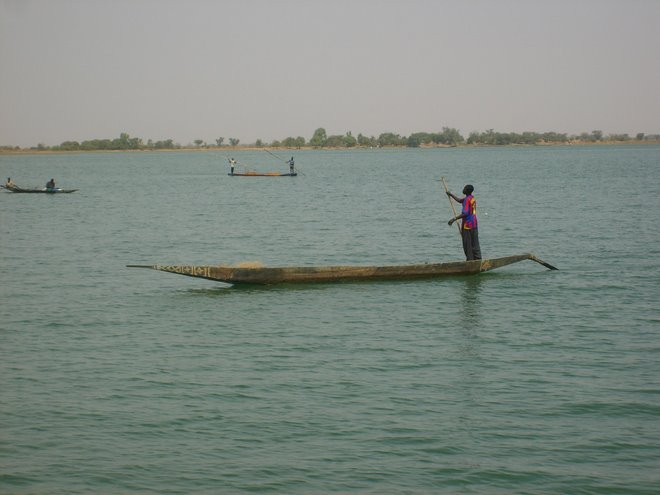As I am not travelling at the moment, I haven't got any travel stories to tell. I realise also that it is time to get over my Mali high and get down to the daily business. Therefore it came to my mind that I could start with making clear what I am actually studying here in Oslo. As my doctoral project has been since recently available also in English, although in quite a shortened form, I thought to put it here, since it may happen that somebody very strongly (I stress: really very strongly) wishes to get to know the most important points of the project. So here it is... just under the introducing photo to make it more eye-catching :)
-----------------------------------------------
Norway in the League of Nations – a small state’s idealism towards the politics of great powers
Presentation of the problem
The philosophy behind the League of Nations represented a fundamental shift in thought from the pre-World War I methods of law and politics and a unique moment when international affairs was institutionalized. The organization, founded as a result of the Paris Peace Conference in 1919, was however to exhibit the dissonances between the allies. In spite of certain scepticism with regards to small states’ lack of influence on drafting the Covenant and the League of Nations’ lacking universality, Norway joined the organisation 4th March 1920. The assumptions that the international system after the war had to be based on the international order, as well as a fear for the international isolation, were among the fundamental reasons for Norway entering the League of Nations. These factors turned out to be even stronger than reservations about abandoning the previous unconditional neutral line.
Norwegian engagement in the League of Nations is seen through the perspective of Norwegian policy makers’ perceptions of Norway’s peace policy, which however not necessarily were claimed to be exactly defined. My temporary definition includes all the activity conducted by and on behalf of the Norwegian state for promoting the international peace. To the most significant prerequisites for Norway’s pursuit for peace in the interwar period belong: peaceful relations between Norway and its neighbours; the fact that Norwegian foreign policy makers were oriented towards peaceful solutions to conflicts with other states; and not least Norway’s active membership in the League of Nations as a forum to promote international law as the basis for solving conflicts between nations.
Olav Riste’s idea of continuity in Norwegian foreign policy, that considers the interwar period as its formative period, provides a background to imply that the nowadays desire to promote Norway as a “humanitarian great power” may be also seen in a historical perspective, with regard to Norway’s efforts to support peaceful solutions to conflicts, disarmament and maintenance of peace.
The point made by Patrick Salmon on differences between small states and great powers: ”Small states hanker after the world as it ought to be; great powers deal with the world as it is.” illustrates a characteristic feature of many small states, which strongly emphasize internationalist principles, international law, and other “morally minded” ideals, also because it is in their own interest, much more than in the interest of great powers. Accordingly, the relation between idealistic attitudes existing among the Norwegian political elites, which have strongly contributed to launching an image of Norway as a particularly peace loving country, and the country’s realpolitik as it was performed in the League of Nations takes a significant place in my project.
Theoretical foundation
The years after the end of the World War I witnessed fundamental changes in the international system, with strong implications for small state foreign policy. For the first time in history small states had a chance to participate in shaping the international order and consequently gain another status than only pawns in great powers’ competition. The establishment of the League of Nations, a consensus organization where all the members had principally the same rights, was a milestone in this process.
David Vitals definition of a small state is a point of departure to consider Norway to be a representative for the small states class: ”...the small (or minor) power is that state which, in the long term, can constitute no more than a dispensable and non-decisive increment to a primary state’s total array of political and military resources regardless of whatever short term, contingent weight as an auxiliary (or obstacle) to the primary power it may have in certain circumstances.” The main reason for choosing the theory is however a need to emphasize that the distinction between great powers and small states is not only of quantitative, but first and foremost of qualitative character. Such a perspective contributes to considering a small state as a totally relevant actor in the international relations, in spite of its military, economic and other limitations.
Method
The method used in the project is based on R. G. Collingwood’s theory of “re-enactment of past experience”, which comprises two principles: “experience of that form of thought” and “[reflection] upon that experience”. The method seems especially suitable to support the project about Norway’s role in the League of Nations, because a substantial part of the international relations remains “unspoken assumptions” (O. Riste). The sphere of “the unspoken assumptions” exercises often at least as crucial influence as the official side. For Norway’s foreign and security policy in the interwar period this two-dimensionality has its particular relevance with regard to the ‘implicit guarantee’ from Britain, the interaction between Norwegian national interests and the country’s peace engagement, and not least the widening gap between theory and practise in the League of Nations’ activity.
The philosophy behind the League of Nations represented a fundamental shift in thought from the pre-World War I methods of law and politics and a unique moment when international affairs was institutionalized. The organization, founded as a result of the Paris Peace Conference in 1919, was however to exhibit the dissonances between the allies. In spite of certain scepticism with regards to small states’ lack of influence on drafting the Covenant and the League of Nations’ lacking universality, Norway joined the organisation 4th March 1920. The assumptions that the international system after the war had to be based on the international order, as well as a fear for the international isolation, were among the fundamental reasons for Norway entering the League of Nations. These factors turned out to be even stronger than reservations about abandoning the previous unconditional neutral line.
Norwegian engagement in the League of Nations is seen through the perspective of Norwegian policy makers’ perceptions of Norway’s peace policy, which however not necessarily were claimed to be exactly defined. My temporary definition includes all the activity conducted by and on behalf of the Norwegian state for promoting the international peace. To the most significant prerequisites for Norway’s pursuit for peace in the interwar period belong: peaceful relations between Norway and its neighbours; the fact that Norwegian foreign policy makers were oriented towards peaceful solutions to conflicts with other states; and not least Norway’s active membership in the League of Nations as a forum to promote international law as the basis for solving conflicts between nations.
Olav Riste’s idea of continuity in Norwegian foreign policy, that considers the interwar period as its formative period, provides a background to imply that the nowadays desire to promote Norway as a “humanitarian great power” may be also seen in a historical perspective, with regard to Norway’s efforts to support peaceful solutions to conflicts, disarmament and maintenance of peace.
The point made by Patrick Salmon on differences between small states and great powers: ”Small states hanker after the world as it ought to be; great powers deal with the world as it is.” illustrates a characteristic feature of many small states, which strongly emphasize internationalist principles, international law, and other “morally minded” ideals, also because it is in their own interest, much more than in the interest of great powers. Accordingly, the relation between idealistic attitudes existing among the Norwegian political elites, which have strongly contributed to launching an image of Norway as a particularly peace loving country, and the country’s realpolitik as it was performed in the League of Nations takes a significant place in my project.
Theoretical foundation
The years after the end of the World War I witnessed fundamental changes in the international system, with strong implications for small state foreign policy. For the first time in history small states had a chance to participate in shaping the international order and consequently gain another status than only pawns in great powers’ competition. The establishment of the League of Nations, a consensus organization where all the members had principally the same rights, was a milestone in this process.
David Vitals definition of a small state is a point of departure to consider Norway to be a representative for the small states class: ”...the small (or minor) power is that state which, in the long term, can constitute no more than a dispensable and non-decisive increment to a primary state’s total array of political and military resources regardless of whatever short term, contingent weight as an auxiliary (or obstacle) to the primary power it may have in certain circumstances.” The main reason for choosing the theory is however a need to emphasize that the distinction between great powers and small states is not only of quantitative, but first and foremost of qualitative character. Such a perspective contributes to considering a small state as a totally relevant actor in the international relations, in spite of its military, economic and other limitations.
Method
The method used in the project is based on R. G. Collingwood’s theory of “re-enactment of past experience”, which comprises two principles: “experience of that form of thought” and “[reflection] upon that experience”. The method seems especially suitable to support the project about Norway’s role in the League of Nations, because a substantial part of the international relations remains “unspoken assumptions” (O. Riste). The sphere of “the unspoken assumptions” exercises often at least as crucial influence as the official side. For Norway’s foreign and security policy in the interwar period this two-dimensionality has its particular relevance with regard to the ‘implicit guarantee’ from Britain, the interaction between Norwegian national interests and the country’s peace engagement, and not least the widening gap between theory and practise in the League of Nations’ activity.



















Aucun commentaire:
Enregistrer un commentaire